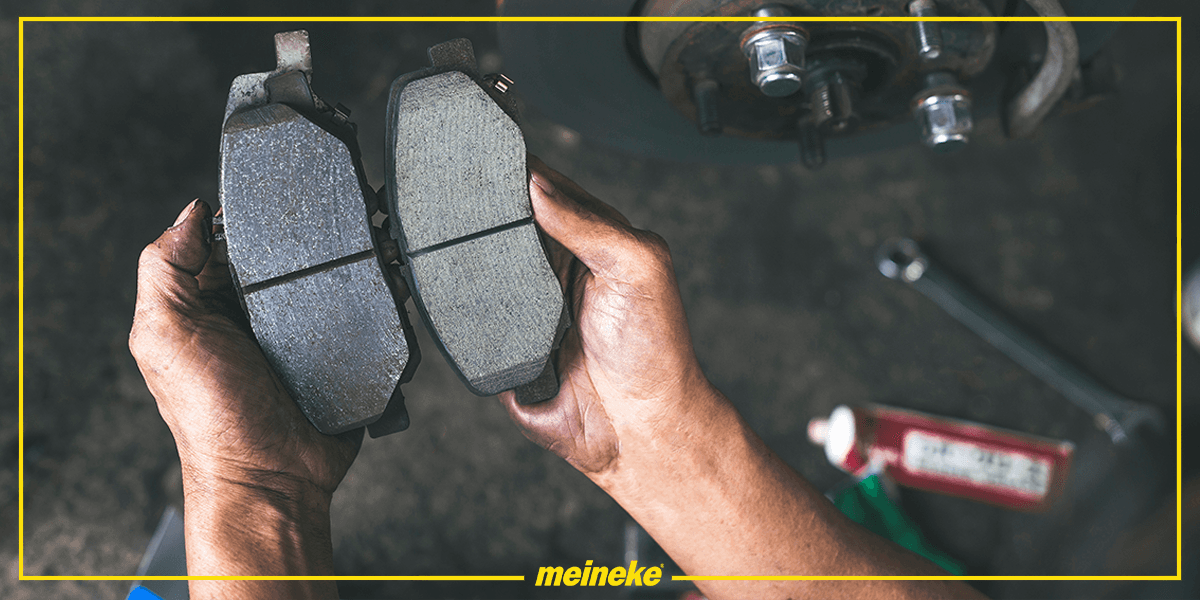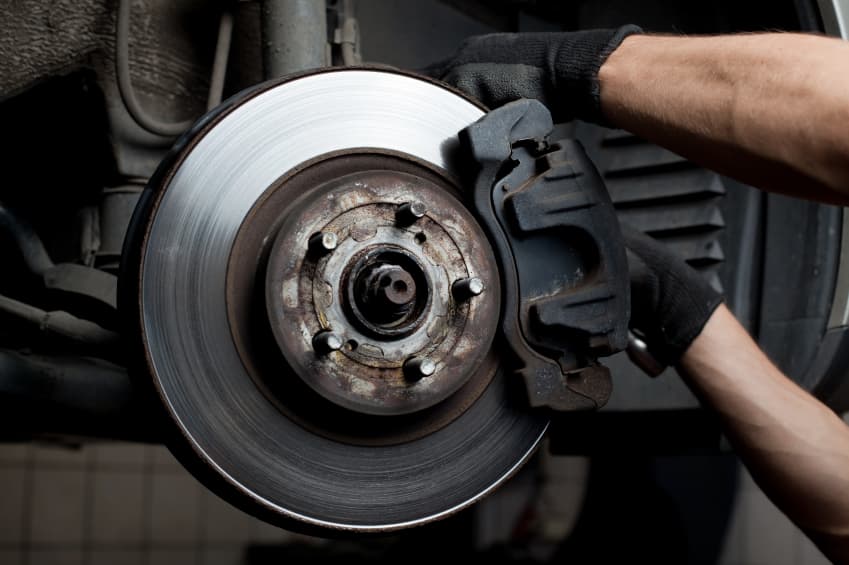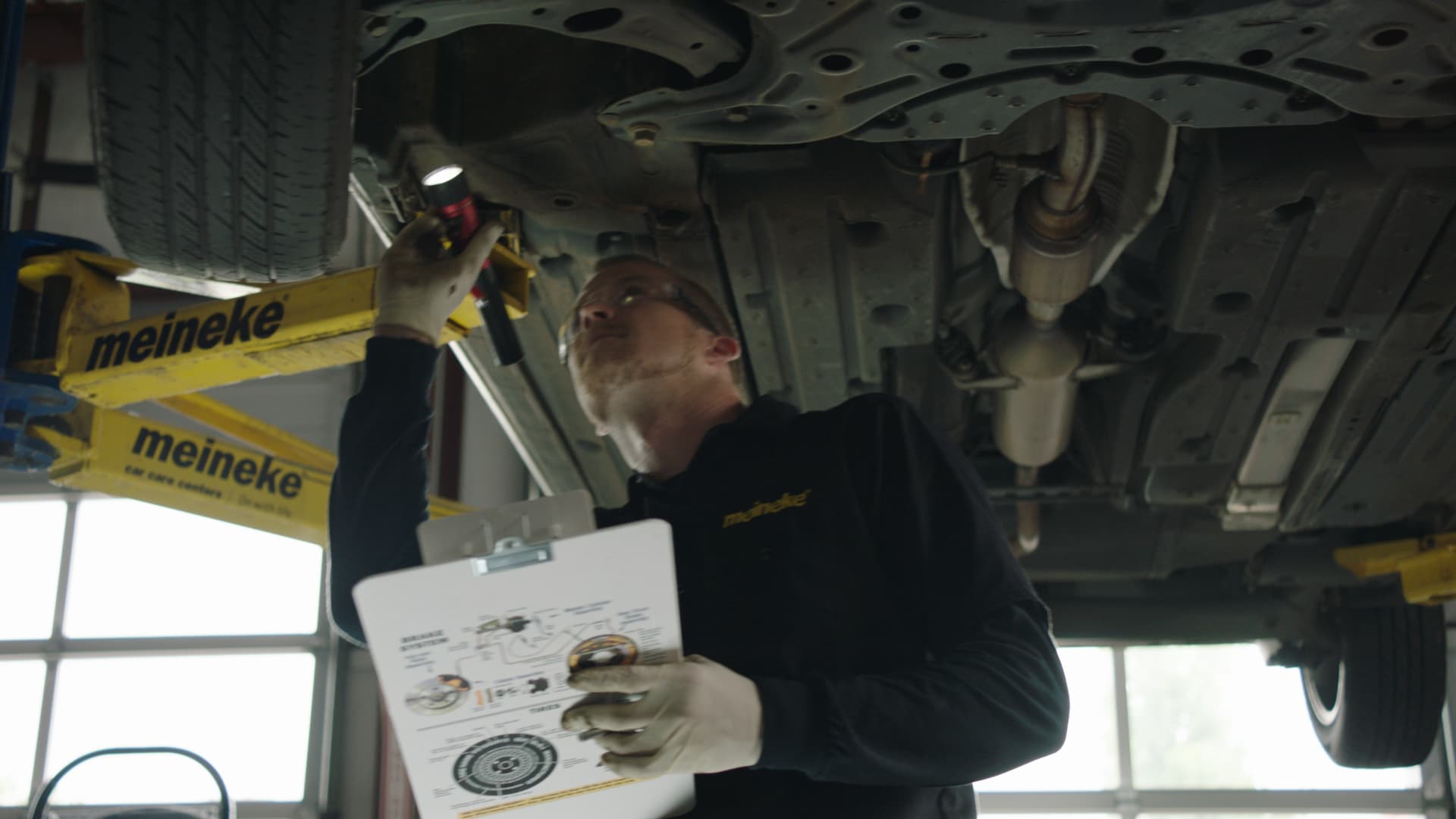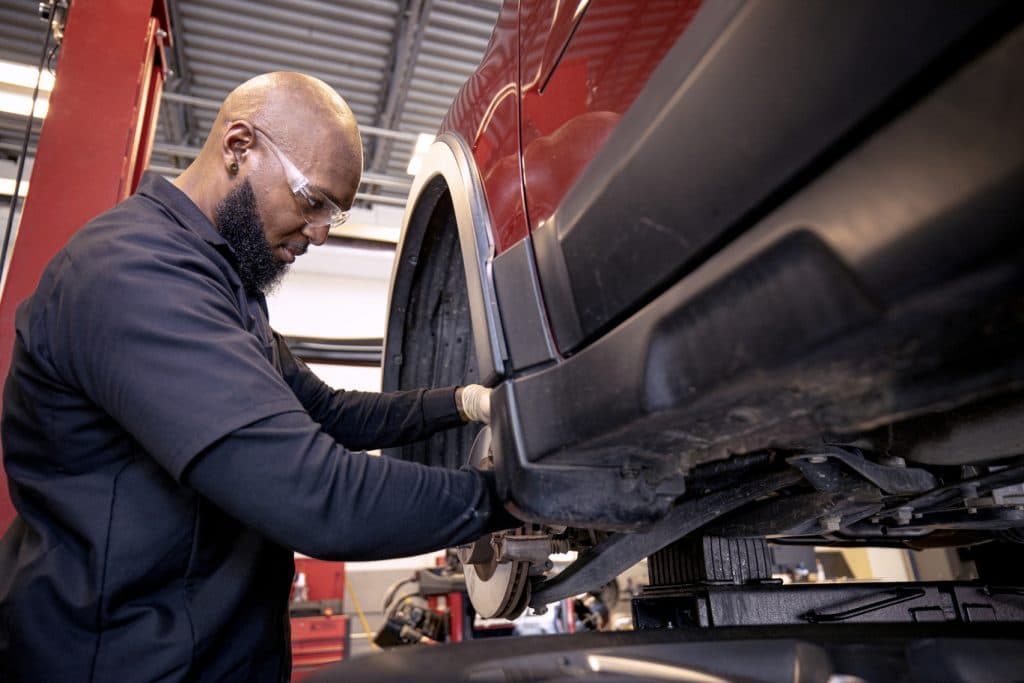
May 10, 2017
How Long Do Brake Pads Last?
Have you ever wondered what's standing between you and a potential wreck on the road? These small but mighty components, known as brake pads, are your first line of defense on the road.
Like all auto parts, brake pads have limits. Understanding how long brake pads last isn't just about maintaining your car; it's about ensuring your peace of mind on every ride.
The Importance of Timely Brake Pad Maintenance
Sometimes, a mechanical problem with your car can arise out of nowhere---seemingly without any red flags or warning signs. That can be frustrating, as it prompts you to make an urgent, unplanned repair to your vehicle.
In other instances, though, you'll receive a heads-up that your vehicle needs some work. For example, brake pads become worn down over time and will eventually need replacing. If you're paying attention, you'll see it coming in plenty of time to schedule the needed maintenance work.
The important thing is to be alert to the telltale signs of worn-down brake pads and to get replacements soon---otherwise, you could endanger your safety and your wallet.
How Long Should Brake Pads Last?
The lifespan of brake pads can vary significantly depending on several factors. On average, brake pads last between 30,000 and 70,000 miles. However, some may last up to 100,000 miles or more, while others might need replacing after just 20,000 miles.
Factors that affect how long brake pads last include:
- Driving habits: Aggressive braking can wear brake pads faster.
- Environment: City driving with frequent stops weakens pads quicker than highway driving.
- Vehicle weight: Heavier vehicles put more stress on brake pads.
- Brake pad quality: Higher quality pads generally last longer.
- Brake system maintenance: Regular brake system check-ups can extend pad life.
Understanding these factors can help you estimate how often to change brake pads for your vehicle and driving conditions.
How To Know When to Change Brake Pads
So how do you know when to change brake pads? The answer is pretty simple. You listen to them.
When a brake pad needs replacing, it makes a distinctive sound---a screeching or squealing noise---one that begins when you press down on your brake pedal and doesn't necessarily stop once the pedal is released.
Also, keep your ears open for a grinding sound as you brake---another way to know that your brake pad is on its last leg.
These are the symptoms of brake pads that need replacing---but what do they really mean? Well, they mean that your brake pads have worn very thin. This leads to metal-on-metal scraping as the caliper rubs against the rotor. This friction causes the scraping sound, while damage to the rotor can cause vibrations in the pedal and up into the steering wheel. These are all signals that the brake pad is worn down too far and needs to be replaced.
The squealing sound you hear is actually a safety mechanism built into the car---a tab built into the brake pad and designed to let the driver know that the pad has worn down too far and needs to be replaced before further damage is done. Listen to this warning!
5 Signs That Indicate When to Change Brake Pads
Knowing when to change brake pads is important for maintaining your vehicle's safety and performance. Here are five key signs that indicate it's time for a brake pad replacement:
- Squealing or screeching noise: As mentioned earlier, this is often the first and most noticeable sign.
- Grinding sound: If you hear a grinding noise, your brake pads have worn down completely, and metal is grinding on metal.
- Vibration in the brake pedal: If you feel a pulsing or vibration when applying the brakes, it could indicate warped rotors due to worn brake pads. You may also feel this vibration in the steering wheel.
- Brake pad indicator light: Many modern vehicles have a dashboard light that illuminates when brake pads are worn.
- Thin brake pads: Inspecting them can reveal if they're too thin (less than 1/4 inch).
These signs indicate that you should consider replacement soon to ensure your vehicle's safety.
The Risks of Delaying Brake Pad Changes
If you don't replace the brake pad fairly soon, you run the risk of further damage to your vehicle---to the rotor, in particular---which will make it far more expensive when you finally do take the car in for maintenance. And eventually, your brake pad will be worn down so much that safety is compromised---clearly, a worst-case scenario that you desperately want to avoid.
Delaying brake pad replacement can lead to several serious consequences:
- Reduced braking efficiency: Worn brake pads decrease your vehicle's ability to stop quickly, increasing the risk of accidents.
- Damage to other brake components: Worn pads can damage rotors, calipers, and other parts, leading to costly repairs.
- Increased stopping distance: As brake pads wear, your vehicle requires more distance to come to a complete stop.
- Complete brake failure: In extreme cases, severely worn brake pads can lead to total brake system failure.
- Higher repair costs: Addressing brake pad issues early is much less expensive than dealing with damaged rotors or a full brake system overhaul.
Turn to Meineke for Brake Pad Replacement
How do you avoid these fates?
Listen for the sounds of a brake pad gone bad. Stay alert to vibrations and shaking sensations, too. When your vehicle tells you that the brake pad needs to be replaced, listen up!
Take action by scheduling a maintenance appointment for your car. In the long run, it could actually save you quite a bit of money---and prevent you from driving in a car that just isn't safe.
When it's time to address how often to change brake pads or when to change brake pads, turn to the mechanics at Meineke. Our skilled technicians can help you determine how long your brake pads last and provide quality replacement services.
Find a local Meineke mechanic shop for quality brake pad replacement near you. Also, remember to check our website for current coupons and special offers on brake services. With our regular deals on brake pad replacements and inspections, you can save money while ensuring your vehicle's safety.



